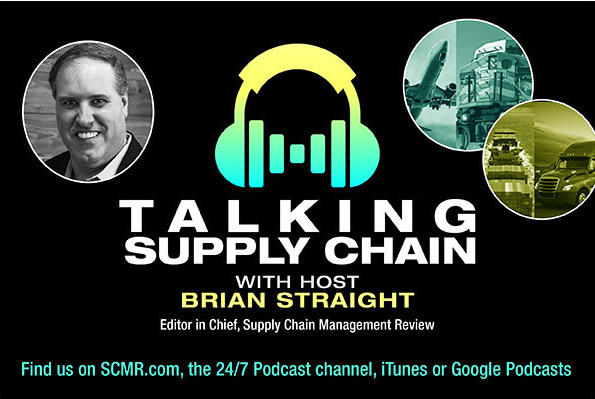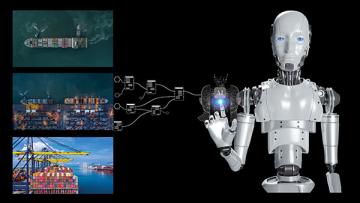The Port of Rotterdam Authority and IBM today announced their collaboration on a multi-year digitization initiative to transform the port's operational environment using Internet of Things (IoT) technologies in the cloud to benefit the port and its stakeholders.
The initiative will also prepare the Port of Rotterdam's entire site to host connected ships in the future. It begins with the development of a centralized dashboard application that will collect and process real-time water, weather sensor data and communications data, analyzed by IBM IoT technologies.
According to Paul Smits, chief financial officer of the Port of Rotterdam Authority, this will enable a new wave of safer and more efficient traffic management at the port.
“Speed and efficiency is essential to our business, and requires us to use all of the data available to us,” he says. “Thanks to real-time information about infrastructure, water, air, etc., we can enormously improve the service we provide to everyone who uses the port, and prepare to embrace the connected, autonomous shipping of the future.”
As the largest port in Europe, the Port of Rotterdam handles over 461 million tons of cargo and more than 140,000 vessels annually. Previously the port relied on traditional radio and radar communication between captains, pilots, terminal operators, tugboats and more to make key decision on port operations.
With the new initiative, Port of Rotterdam operators will also be able to view the operations of all the different parties at the same time, making that process more efficient. Spokesmen contend that ocean carriers and the port stand to save up to one hour in berthing time which can amount to about $80,000 in savings.
The Port of Rotterdam's digital transformation project is enabled by IBM's cloud-based IoT technologies and will see the Port of Rotterdam and IBM are working together long-term to uncover other innovative applications of IoT and artificial intelligence. Cisco and Axians are also involved in the project.
As reported here earlier, IBM and Maersk recently struck a deal to introduce blockchain technology to global shipping. Over 18 months, through initial pilots, IBM used blockchain technology to securely digitize, automate, and store critical paperwork.
“Early testing demonstrated that it can significantly reduce administrative costs, which at the time of testing could be as high as 15% of the value of the goods shipped.
SC
MR

More Ports & Shipping
- C.H. Robinson rolls out AI agent to address LTL classification overhaul
- Uber Freight’s Val Marchevsky to deliver Keynote at NextGen Supply Chain Conference
- From static to strategic: The shift to dynamic pricing models
- We cut shipping document costs by 98% and turnaround time by 99%: Here’s how
- Last call for speaker abstracts, award submissions for NextGen Supply Chain Conference
- Rooted in uncertainty: Why the agricultural supply chain is ripe for transformation
- More Ports & Shipping
Latest Podcast

 Explore
Explore
Topics
Procurement & Sourcing News
- C.H. Robinson rolls out AI agent to address LTL classification overhaul
- Danone latest to announce new US investment
- Uber Freight’s Val Marchevsky to deliver Keynote at NextGen Supply Chain Conference
- Unlocking the green grid: Innovations for eco-friendly last mile
- Dealing with supply chain complexities with scenario intelligence
- Securing critical minerals during a global trade war
- More Procurement & Sourcing
Latest Procurement & Sourcing Resources

Subscribe

Supply Chain Management Review delivers the best industry content.

Editors’ Picks





